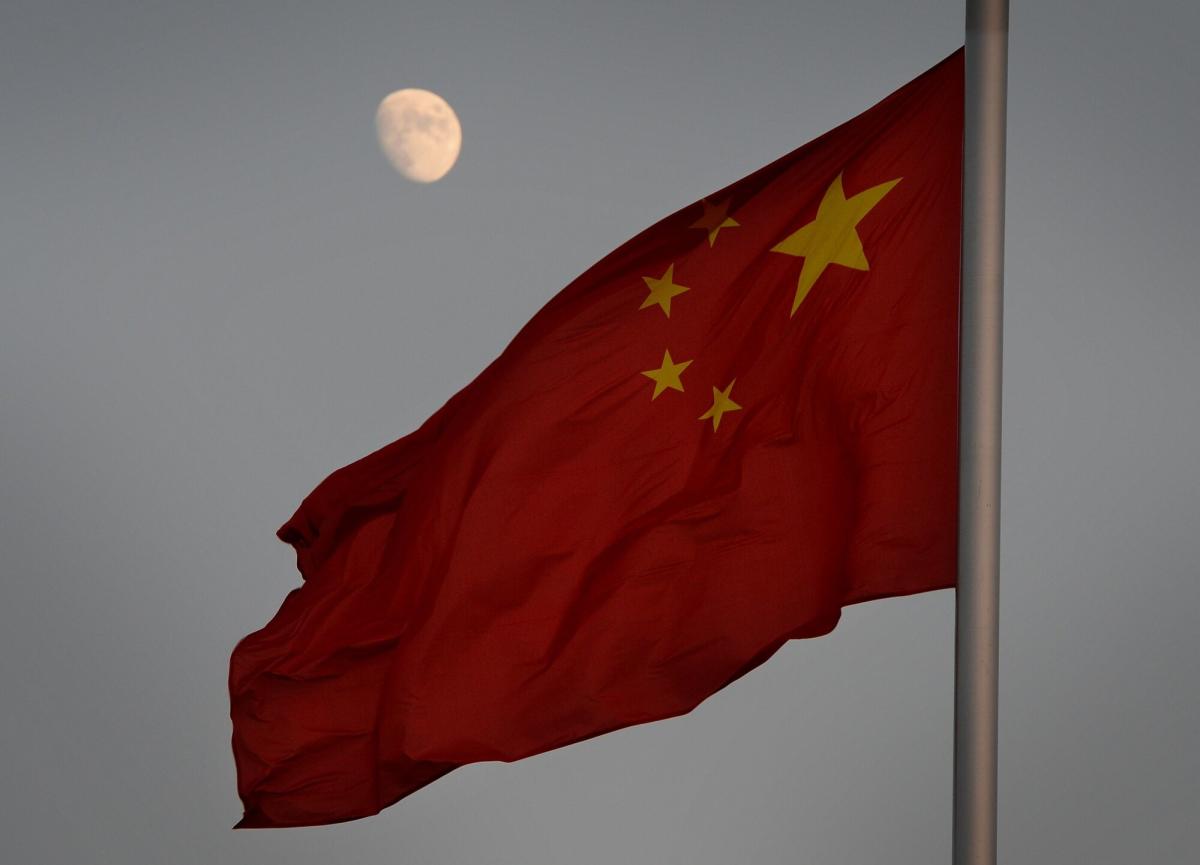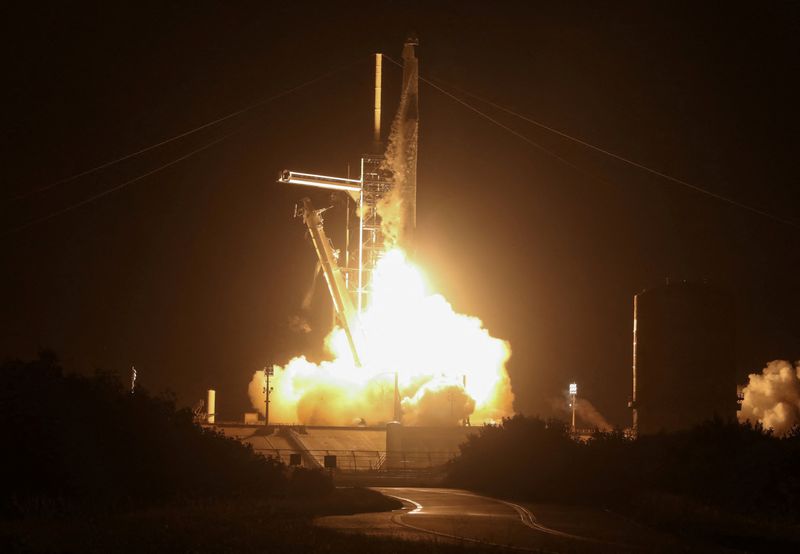
(Bloomberg) — China is aiming to loosen Elon Musk’s lock on reusable launch vehicles — and close a yawning technology gap with the US.
Most Read from Bloomberg
Beijing is turning to aerospace startups and state-owned enterprises alike to develop an edge in rockets that can be used dozens of times to lift satellites into low-Earth orbit.
One company trying to meet that challenge is LandSpace Technology Corp., whose Zhuque-3 reusable rocket successfully completed a 10 kilometer (6.2 mile) vertical takeoff and landing return test flight at the Jiuquan Satellite Launch Center on Wednesday. According to Chinese state media, it marked a “significant breakthrough in China’s commercial space industry” and was a “crucial step toward achieving high capacity, low cost, high frequency and reusability in future space launches.”
Another startup in the wings is Deep Blue, a closely held firm that’s also planning to test a reusable rocket as soon as this week. A successful demonstration would bring it too one step closer to providing the type of regular orbital deployment service offered by SpaceX’s reusable Falcon 9 rockets.
Huo Liang, the chief executive officer of Jiangsu Deep Blue Aerospace Technology Co., said SpaceX is setting the pace for the rest of the space industry. “Their rockets are now flying routinely, and repeatedly executing commercial missions, whereas China has not yet mastered this technology.”
While China’s space program has matched NASA with multiple landings on the moon and Mars, it hasn’t kept pace by developing rockets that can be used again and again. It’s not alone. Most other Asian, European and Russian craft also rely on single-use launch vehicles, giving Musk’s SpaceX a near-monopoly on the global market.
Jeff Bezos’ Blue Origin LLC has come close with its reusable New Shepard rocket, which makes sub-orbital missions taking passengers to space for a few minutes. His bigger New Glenn rocket, designed to deliver satellites to orbit and fly a minimum of 25 times, is expected to debut in November, four years behind schedule.
Since 2017, SpaceX has been reusing the boosters of its rockets, enabling it to offer lower-cost launches at rapid intervals and build out its network of more than 6,000 satellites for its worldwide Starlink internet service.
That gives it — and the US — a huge cost advantage over single-use rockets, allowing a steady cadence of launches year-round.
Chinese companies say they’re on the cusp of a sustained breakthrough, with rockets like Deep Blue’s Nebula-1 or similar prototypes under development. Much as the country has come to dominate manufacturing in many other industries, mass production of rockets is yet another target for conquest. The goal is not just to match SpaceX, but to beat it at its own game.
Deep Blue plans an orbital launch by next year as it works out the kinks in its rocket.
“A reusable Chinese rocket, when it happens, will be significantly less expensive than a Falcon 9,” said Carter Palmer, lead analyst for space systems with Forecast International, a Sandy Hook, Connecticut-based aerospace and defense market research firm.
Mountainside Crash
It may be a while before that happens.
Even if China’s rocket makers succeed with initial tests, speedy deployment of reusable rockets will take time and multiple test cycles. And there have been many setbacks as companies tinker with their technology, such as a test in June, when Beijing Tianbing Technology Co., also known as Space Pioneer, crashed a rocket into a mountainside 1.5 kilometers from the launch pad.
Europe’s Airbus SE-Safran SA joint venture ArianeGroup, Japan’s Mitsubishi Heavy Industries Ltd. and America’s United Launch Alliance, a joint venture between Boeing Co. and Lockheed Martin Corp., are struggling to come up with their own reusability strategies. Those would allow more launches and help amortize the cost and build time for each rocket.
Mitsubishi Heavy aims to eventually introduce a reusable launch vehicle but “we’re not at the stage of developing anything concrete right now,” CEO Seiji Izumisawa told Bloomberg Television on June 21.
For China, it’s a matter of civic pride and national security. President Xi Jinping’s government wants a healthy commercial space industry that can serve domestic needs and compete against the US for customers — and influence — around the globe.
“They’re going to offer that up as one of the benefits of being on China’s side in this great power competition: ‘You don’t have to rely on the United States for these sorts of things’,” said Oriana Skylar Mastro, center fellow at Stanford University’s Freeman Spogli Institute for International Studies.
Beijing also wants a counterweight to SpaceX’s increasingly ubiquitous Starlink, which has played a prominent role in conflict zones such as Ukraine and is bringing reliable internet service to much of the underdeveloped world. China needs reusable rockets to build satellite networks in low-Earth orbit and other projects, from a lunar research base to an orbital solar power station, said Peter Garretson, senior fellow in defense studies at the American Foreign Policy Council.
“All of those plans require a tremendous ability to move mass in the solar system at scale and you can’t do that economically without reusable launch,” he said. “Reusability is an absolute linchpin in China’s space economic development plan.”
Gobi Desert Test
LandSpace and Deep Blue are just several Chinese companies vying to emulate Musk by developing reusable rockets.
Subsidiaries of state-owned China Aerospace Science and Technology Corp. (CASC) and China Aerospace Science and Industry Corp. (CASIC) conducted similar tests earlier this year. One took place in the Gobi Desert in June under the auspices of CASC’s Shanghai Academy of Spaceflight Technology, which has an ambitious 2025 target for a first flight to space with a reusable rocket.
Beijing-based LandSpace has said commercial flights will start in 2025. Other Chinese companies working on reusable rockets include Galactic Energy Aerospace Technology Co. and Orienspace, which expects to launch its reusable Gravity-2 rocket by early 2026, co-CEO Yao Song told Bloomberg in February.
LandSpace, Galactic Energy and Orienspace didn’t respond to requests for comment. The two state-owned enterprises also didn’t respond.
To be sure, China’s deep pockets are buoying its space industry. The government spent as much as $14 billion on its space program last year, according to the CIA’s World Factbook, with much of that going to state-run enterprises such as CASC and CASIC. Private Chinese space companies are subsidized via investments by government-backed funds and use of publicly funded launch facilities. In February, the government announced the opening of a reusable rocket technology center in Beijing to help startups.
“In terms of the importance, take a look at other countries or adversaries. Where are they investing? They’re investing in space,” Tim Keating, Chief Strategy Officer for Sierra Space, told the US Chamber of Commerce’s annual aerospace summit in Washington on Wednesday. “In fact, I think China’s in front of us. You look at the investment and you know that it’s not being placed just for someone’s health. So I would say that’s the one telltale sign that we have a problem.”
Deep Blue in July announced it raised nearly 1 billion yuan ($141 million) from Chinese investors such as a government-backed high-tech zone in Wuxi, a city near Shanghai. Rival Orienspace in January raised about 600 million yuan in a funding round that included another local government’s fund. And Galactic Energy last December said it raised 1.1 billion yuan from local investors.
But while China’s government has been very supportive of the sector, it remains to be seen if the country can nurture a national champion capable of beating SpaceX at its own game, said Jianwei Li, managing partner of Zhencheng Capital, a Chinese venture capital company in Beijing that an investor in Deep Blue.
“Every company says they want to be China’s SpaceX, but let’s be realistic,” Li said. “Everyone’s not doing that well.”
— Bruce Einhorn and Lulu Shen
–With assistance from Bruce Einhorn and Lulu Shen.
(Updates with comment on China investment in twenty-sixth paragraph.)
Most Read from Bloomberg Businessweek
©2024 Bloomberg L.P.
EMEA Tribune is not involved in this news article, it is taken from our partners and or from the News Agencies. Copyright and Credit go to the News Agencies, email news@emeatribune.com Follow our WhatsApp verified Channel



